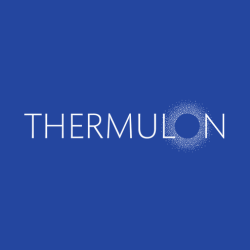There is currently a dire need in the UK construction industry for insulation materials that are affordable, high-performance and fire-safe. This was highlighted by the 2017 Grenfell tower tragedy, which led to the ban of the most common plastic-based insulation materials in buildings above five storeys. All existing fire-safe alternatives are either expensive or low-performing, and with more than 30% of the UK’s carbon emissions resulting from gas-heating homes and offices, there has never been a greater need for novel solutions in this £850 million-a-year market.
Thermulon has developed a novel chemical process to produce silica aerogel powders. Silica aerogels are inherently non-flammable and one of the most insulating materials, but have historically been kept out of the construction industry due to high cost. This cost is largely due to their processing method, and Thermulon’s unique pathway significantly reduces price when produced at scale. Its vision is to use this to make buildings safer and more energy efficient.
Thermulon’s technology presents vast potential benefits commercially, environmentally and socially. Uninsulated UK solid wall homes alone lose 1.6 Terawatt-hours of energy per year (equivalent to the annual usage of 440,000 households).

By addressing this market with its retrofit-applicable products, Thermulon can help the UK reach its 2050 carbon neutral goals. Fuel poverty remains an issue in 10% of UK households, and Thermulon’s solution can improve heating efficiency while consuming minimal floorspace, presenting an ideal solution for ECO3 government-funded projects in low-income and vulnerable households.
In the next 18 months, Thermulon aims to scale its material production capacity to be able to produce its first integrated insulation products and carry out demonstration projects in homes and buildings. Having the first demonstration home insulated with Thermulon material will be a major milestone that proves both the viability of the production process and its applicability to commercial use cases. The company will need to scale the process, work with development partners in final products such as plasters and renders, and collaborate with architectural firms to achieve this.
Thermulon has taken equity investment from both Deep Science Ventures and Sustainable Ventures. In addition to the Royal Academy of Engineering’s Enterprise Fellowship, it has been awarded the Royal Society of Chemistry’s Emerging Tech Prize. Thermulon is collaborating with several development and commercial partners including the Centre for Process Innovation, Imperial College London, and lime render and plaster manufacturer Best of Lime.
Associated Programme

